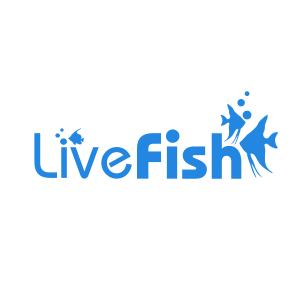Placidochromis Blue Otter 9cm
Placidochromis Blue Otter
The Placidochromis Blue Otter is a rare and unique variant within the African cichlid hobby, offering a breathtaking blend of colours that make it stand out in any Malawi setup. With its striking blue and silver hues, this species is an eye-catching addition for aquarists looking to diversify their cichlid collection. Like other Placidochromis species, the Blue Otter is relatively peaceful for an African cichlid, making it an excellent choice for larger, well-structured community tanks with other Haps and Peacocks.
This species exhibits a stunning metallic blue sheen that covers most of its body, with faint otter-like silver markings that shimmer under aquarium lighting. Some individuals develop a darker, marbled pattern, making each fish unique in its appearance. The contrast between the blue body and silver-to-black patches creates an impressive display, especially in males, whose colours become more intense as they mature. Growing to approximately 15-18 cm, they are mid-to-large-sized Haps that require ample swimming space.
Breeding follows typical Placidochromis behaviour, as they are maternal mouthbrooders. Males display enhanced colours during spawning, enticing females to lay eggs on a chosen flat surface. Once fertilised, the female collects the eggs in her mouth, holding them for about 21-28 days before releasing free-swimming fry. Males are larger with more vivid colouration, while females tend to be smaller and more silver-toned.
Tank Recommendations for your Placidochromis Blue Otter
A minimum tank size of 250 litres is required, though larger is always better to accommodate their active swimming behaviour. They thrive in rocky aquascapes with plenty of open swimming space, mimicking their natural lake environment. A sandy substrate is ideal, and large rock structures should be arranged to create hiding spots while still allowing unobstructed movement.
Suitable Tank Buddies
Blue Otters are relatively peaceful for a Hap but still require compatible tank mates that can handle their size and energy.
Usually Compatible
Other Placidochromis species, Aulonocara (Peacocks), Copadichromis, and other mid-to-large Haps. Synodontis catfish also make excellent tank mates.
Sometime Compatible
Certain Mbuna species, provided they are on the less aggressive side and the tank is large enough to reduce territorial disputes.
Rarely Compatible
Highly aggressive species such as Nimbochromis, large predatory Haps, and overly boisterous Mbuna like Melanochromis, may stress or outcompete them for food.
Feeding your Placidochromis Blue Otter
These fish are carnivorous with an insectivorous preference, feeding on small invertebrates in the wild. In captivity, they do well on high-quality cichlid pellets, protein-rich flakes, and frozen foods like brine shrimp, mysis shrimp, and krill. While they appreciate occasional meaty foods, avoiding excessive fatty proteins such as feeder fish (goldfish) is recommended to prevent health issues. A varied diet will enhance their colouration and keep them in top condition.
| Scientific Name | Placidochromis Sp. blue otter |
|---|---|
| Care Level | Moderate |
| Common Names | Blue Otter Cichlid, Otter Placidochromis |
| Diet | Carnivore |
| Fish Family | Cichlidae |
| Lifespan (years) | 10 |
| Max. Length (cm) | 18 |
| Min. Tank Volume (l) | 250 |
| Origin | Africa |
| Sociability | Aggressive |
| Venomous | No |
| Water Conditions | 24-28° C, pH 7.5-8.5 |
| Plant Safe | With Caution |


